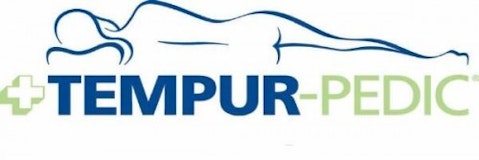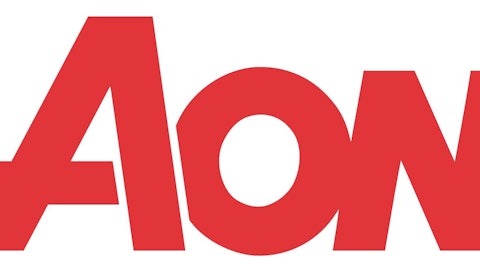In the first quarter of 2012, Chieftain Capital reduced its stake in Tempur-Pedic International Inc. (NYSE:TPX) from 5.2 million shares to 3.9 million. But now the fund, managed by John Shapiro, is back in. A 13G filed with the SEC reported ownership of over 6 million shares, or over 10% of the company. Tempur-Pedichas seen its share price fall 45% so far this year; the stock was up over 50% in mid-April but has fallen by nearly two-thirds since that time. While the company had beaten earnings expectations- and beat them last quarter as well- it gave highly negative guidance in its April quarterly report, including the internal forecast of flat revenue and lower earnings this year compared to 2011. True to form, in its most recent quarter the company reported a slight revenue decline, and a decrease in earnings of nearly 50%, compared to the same period the previous year. Mattress sales were down 4% globally, including down 8% in North America and with currency factors blunting the effect of higher international sales. Chieftain likely knows the business very well (and still had a large position in the company) and so decided that the stock price had fallen so far that it made for a good point to increase its stake again.
A number of other hedge funds reported large positions in Tempur-Pedic International Inc. (NYSE:TPX) in their 13F filings for the first quarter of 2012. JAT Capital Management, managed by John Thaler, initiated a 3.1 million share position, which according to its filing documents made it the largest position in the fund’s portfolio. Theleme Partners, Scopus Asset Management, and Columbus Circle Investors all reported positions of over $100 million as well.
Tempur-Pedic International Inc. now trades at both trailing and forward P/E ratios of 10. Sell-side analysts expect that the stagnation in the mattress and bedding company’s business will be short-lived, as the five-year PEG ratio comes out to 0.8. Strangely for an industry which has traditionally been seen as recession-proof, Tempur-Pedic carries a beta of 1.8; however, it is possible that Tempur-Pedic’s more premium product has a high dependency on discretionary, rather than durable, consumer spending. In any case, investors who are worried about a general decline in the market may want to avoid it despite any value case.
The closest large-cap public comparable is Select Comfort (NASDAQ:SCSS). Select Comfort is best known for its Sleep Number brand of mattresses and other products, and has been growing rapidly over the last year: its most recent quarterly report had earnings up 50% compared to a year ago, and the stock price has more than doubled over the last 52 weeks. It now trades at 22 times trailing earnings, but at the rate of growth expected by Wall Street analysts its forward P/E is 15 and its five-year PEG ratio is 0.9. Therefore, it is only slightly higher priced than Tempur-Pedic International Inc. (NYSE:TPX) and has the recent historical growth to lend more credibility to the sell-side calculations. Like Tempur-Pedic, Select Comfort has a fairly high beta of 2.2. Leggett & Platt (NYSE:LEG) is more focused on beds and bed frames and carries multiples slightly below Select Comfort’s. Leggett & Platt also saw good earnings growth last quarter compared to the same period last year, though its revenue declined. Finally, Mattress Firm Holding (NASDAQ:MFRM), which IPO’d in November 2011, is in the same valuation range with a trailing P/E of 19 and a forward P/E of 14. Mattress Firm Holding (NASDAQ:MFRM)saw particularly strong growth in its most recent quarter, including a 38% increase in revenue compared to the same quarter in 2011. We worry that considering the strong growth from Select Comfort and Mattress Firm Holding, Tempur-Pedic’s troubles are due to a loss of market share to these companies and possibly to others as well. However, this may be baked in to existing valuations with Tempur-Pedic’s forward multiple being substantially lower than those of its peers.


